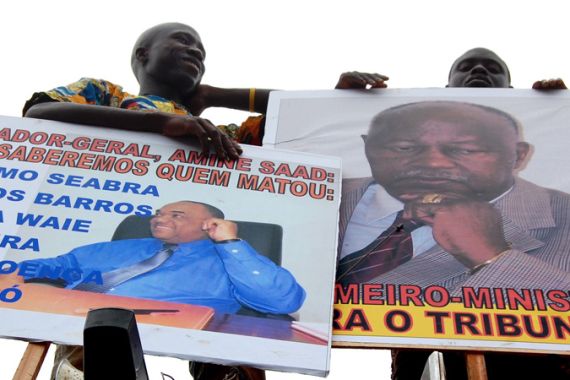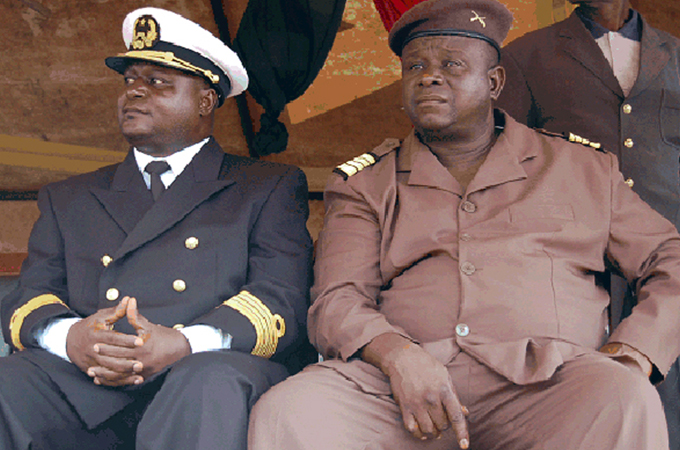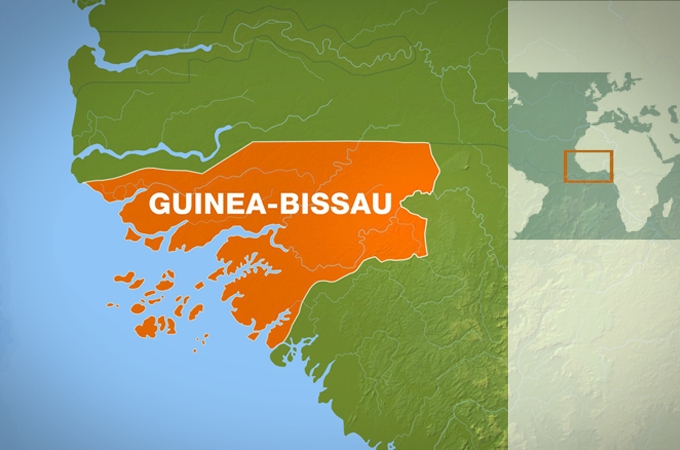Guinea-Bissau to investigate failed coup
Chair of the African Union calls the situation “a source of concern” after two people die in an attempted coup.

 |
| Guinea-Bissau has been beset by coups, military revolts and political assassinations since independence [AFP] |
Guinea-Bissau’s government has said it will set up a commission of enquiry into a foiled coup attempt two days
earlier which was followed by clashes that left at least two dead.
The announcement came as Jean Ping, chairman of the African Union, arrived in the west African country on Wednesday for talks and called the situation “a source of concern” for the AU.
“Directions have been given for the creation of a commission of enquiry to shed light on the situation and identify those responsible,” a government statement said.
Ping said: “In light of my different meetings I think that the situation has now normalised.”
He said he was “optimistic” as he left the country for Banjul, Gambia.
“Dialogue must be maintained between authorities, politicians, civilians and soldiers so that together, they can maintain peace, stability and national harmony,” Ping said.
Guinea-Bissau’s army chief, Antonio Indjai, announced on Monday that a coup attempt by a group of renegade soldiers who attacked army headquarters had been foiled.
History of coups
The former Portuguese colony is chronically unstable, with a history of coups and army mutinies which has made it a stomping ground for drug cartels who use it as a hub to traffic drugs to Europe.
The coup attempt came while ailing President Malam Bacai Sanha, 64, remained in a Paris hospital where he has been receiving treatment for an unknown condition since late November.
 |
Fighting erupted between two factions of Guinea Bissau’s armed forces early on Monday, forcing the prime minister to seek refuge at a foreign embassy.
Residents said automatic weapons and rocket fire could be heard at the Santa Luzia army base in the capital, Bissau, but no casualties have been reported.
“Apparently, it is friction between the army chief and the head of the navy,” a Bissau-based diplomat said.
Indjai, Guinea-Bissau’s army chief, said on Monday that the army and the government of Carlos Gomes Junior, the prime minister, were in control of the situation.
A Guinea-Bissau security source said the fighting broke out after Indjai was arrested on the orders of the head of the navy, Na Tchuto Bubo, but was later freed by his troops.
Indjai said authorities arrested Bubo in connection with the incident, but Bubo disputed the claim.
“For a week now, I have been spending nights at my home, not at the barracks. I was informed of the situation, I had no idea what is going on,” Bubo said.
Past coups
Since independence from Portugal in 1974, Guinea-Bissau has been beset by a series of coups, military revolts and political assassinations.
The country’s former president, Joao Bernardo “Nino” Vieira, was assassinated on March 2, 2009, hours after the head of the army was killed in a bomb explosion.
Less than a year later, mutinous soldiers seized the head of the armed forces and placed the prime minister under house arrest in an apparent coup attempt.
International drug trafficking networks have also taken advantage of the weak government and corruption to turn the country, whose main legal export is cashew nuts, into one of West Africa’s transit points for Latin American cocaine headed to Europe.
The nation sits at the bottom of most economic and health indices, as the majority of people live without electricity or clean running water.
There are few job opportunities for young people and the average life expectancy is just 46 years.